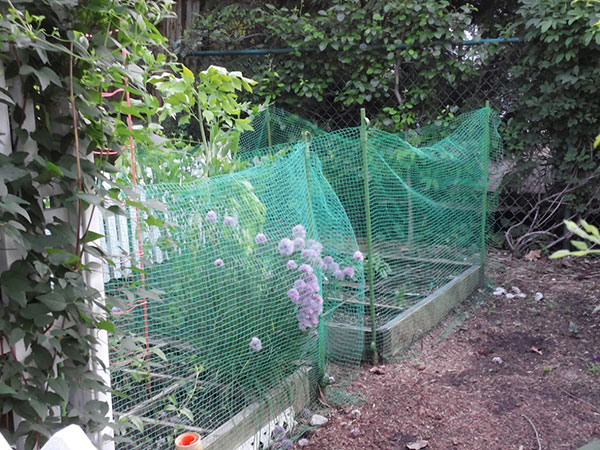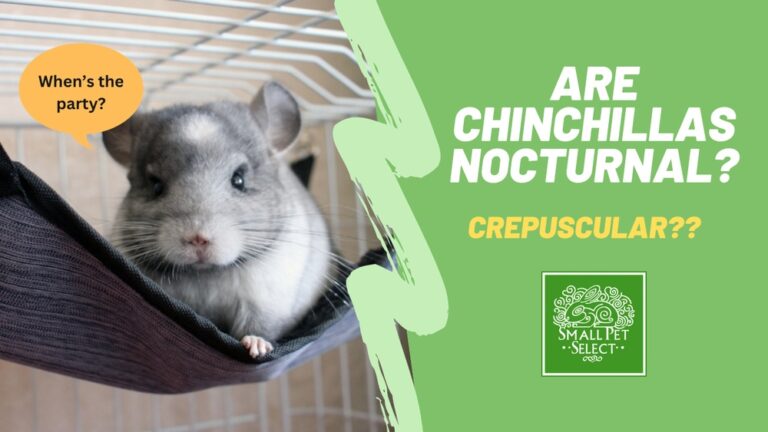Keep Rodents From Eating Tomatoes: Effective Tips That Work Fast
Are you tired of finding your ripe, juicy tomatoes nibbled away by pesky rodents? It’s frustrating to put time and effort into growing your garden, only to watch your hard work disappear overnight.
But don’t worry—there are simple, effective ways to protect your tomatoes and keep those unwanted visitors at bay. You’ll discover easy tips that anyone can use to safeguard your harvest and enjoy fresh, delicious tomatoes all season long. Keep reading to learn how to stop rodents from ruining your garden!
Why Rodents Target Tomatoes
Tomatoes are a favorite snack for many rodents in gardens. These small animals find tomatoes easy to eat and full of nutrients. The bright color and sweet smell attract them. Rodents can cause serious damage to tomato plants and fruits. Understanding why rodents target tomatoes helps protect your garden effectively.
Common Rodent Species In Gardens
Several rodent species visit gardens. Mice and rats are the most common. They move quickly and hide well. Squirrels also nibble on fruits and vegetables. Voles can chew on roots and stems. Each species has different habits but all like tomatoes.
Attraction Factors For Rodents
Tomatoes offer food and water to rodents. The soft texture makes them easy to eat. The sweet taste is a big lure. Overripe or fallen tomatoes attract more rodents. Gardens with dense plants give rodents good hiding spots. These factors increase the chance of rodent visits.
:max_bytes(150000):strip_icc()/GettyImages-996423428-f9eabfdaccd345458d9cf0a41e8eddf4.jpg)
Credit: www.treehugger.com
Signs Of Rodent Damage On Tomatoes
Tomatoes are a favorite snack for many rodents. They can cause serious damage to your plants and reduce your harvest. Knowing the signs of rodent damage helps protect your tomatoes early. Spotting these signs fast lets you act before the problem grows.
Damage may seem small at first but can spread quickly. Watch for unusual marks and signs of rodent activity around your tomato plants.
Identifying Bite Marks
Rodent bite marks on tomatoes look uneven and rough. They often chew small holes or chunks out of the fruit. The edges of the bites are jagged, not smooth like insect damage. You may see tiny tooth marks near the damage. These bites can cause the tomato to rot faster.
Look for chewed leaves or stems too. Rodents use their sharp teeth to gnaw on plant parts. This weakens the plant and can stop growth.
Detecting Rodent Presence
Rodents leave clear signs near your tomato plants. Look for small droppings around the base of plants. These droppings are dark and pellet-shaped. You might find tiny footprints in soft soil or mulch. Rodents also leave scratch marks on wooden stakes or garden beds.
Listen at night for rustling sounds in your garden. Rodents are mostly active after dark. Catching these signs helps confirm their presence quickly.
Preventive Measures To Protect Tomatoes
Protecting tomato plants from rodents is key to a healthy garden. Taking steps early can stop damage before it starts. Simple methods can keep these pests away and save your tomatoes.
Physical Barriers And Fencing
Use barriers around your tomato plants to block rodents. Wire mesh or hardware cloth works well. Place it around the base of each plant. Make sure the mesh holes are small enough to stop rodents. Bury the edges a few inches underground. This prevents rodents from digging under the barrier. A sturdy fence around the garden can also help. Check the fence regularly for holes or gaps. Repair any damage to keep pests out.
Planting Companion Crops
Plant certain herbs and flowers near tomatoes to repel rodents. Mint, garlic, and marigolds have strong smells rodents dislike. These plants create a natural barrier. Spread them around your tomato patch. This confuses rodents and keeps them away. Companion crops also improve soil health and attract beneficial insects. Use this method along with barriers for better protection.

Credit: www.youtube.com
Natural Repellents That Deter Rodents
Natural repellents offer a safe way to keep rodents away from your tomatoes. These solutions work without harmful chemicals. They use scents and ingredients rodents dislike. This keeps your garden healthy and your tomatoes safe.
Using Herbal Scents And Oils
Rodents avoid strong smells like peppermint, eucalyptus, and rosemary. These herbal scents confuse their senses. You can plant these herbs near your tomato plants. Or use essential oils on cotton balls around the garden.
Change the cotton balls every few days to keep the scent strong. The natural oils also repel other pests. They create a barrier rodents do not want to cross.
Homemade Spray Solutions
Homemade sprays are easy to make and apply. Mix water with garlic, chili powder, or vinegar. Spray this mixture on tomato plants and nearby soil. The sharp smell and taste keep rodents away.
Spray after rain to keep the scent fresh. Avoid spraying directly on tomatoes to prevent taste changes. These natural sprays are safe for plants and the environment.
Effective Trapping Techniques
Effective trapping techniques help protect your tomato plants from rodents. Traps catch rodents quickly and stop them from eating your tomatoes. Using the right traps and placing them carefully increases your success. This section explains how to choose traps and where to put them safely.
Choosing The Right Traps
Select traps that work well for small rodents like mice and rats. Snap traps are fast and kill rodents instantly. Live traps catch rodents without harm so you can release them far from your garden. Avoid glue traps as they cause suffering and are less effective. Use bait that rodents like, such as peanut butter or sunflower seeds. Change bait regularly to keep it fresh and attractive.
Safe Trap Placement Tips
Place traps along walls or near tomato plants where rodents travel. Avoid open spaces because rodents prefer to stay close to cover. Set traps in shaded, quiet areas to avoid scaring rodents away. Keep traps out of reach of children and pets to prevent accidents. Check traps daily to remove caught rodents and reset them quickly. Wear gloves when handling traps to avoid leaving your scent.

Credit: www.chicagobotanic.org
Maintaining A Rodent-free Garden
Keeping rodents away from your tomato plants starts with maintaining a clean garden. Rodents are drawn to easy food and shelter. Removing these attractions helps protect your tomatoes and other plants. A tidy garden discourages rodents from settling in.
Cleaning And Removing Food Sources
Clear fallen fruits and vegetables from the ground daily. These items attract rodents quickly. Compost bins should be sealed tightly to avoid smells. Store pet food and birdseed in rodent-proof containers. Remove weeds and dense plant growth where rodents hide. Clean up garden debris regularly to reduce shelter spots.
Regular Garden Inspections
Check your garden every few days for signs of rodents. Look for droppings, gnaw marks, or holes near plants. Inspect tomato plants for nibble marks or damage. Early detection helps stop rodents before they spread. Fix holes in fences and seal gaps around the garden. Keep paths clear to spot rodent activity easily.
How Smart Pets Lover Can Help You with Keep Rodents From Eating Tomatoes
Turning Tomato Protection Into a Learning Experience
It’s one thing to understand why rodents target tomatoes and recognize the signs of their nibbling, but turning that knowledge into practical, hands-on learning can make all the difference. For pet parents and garden lovers alike, observing effective trapping techniques or applying natural repellents offers a unique chance to connect with nature’s delicate balance. This approach not only helps maintain a rodent-free garden but also nurtures patience and problem-solving skills.
At Smart Pets Lover, we believe every interaction with the animals around us—whether furry garden visitors or beloved pets—can tell a story and teach us something new. By carefully monitoring your tomato plants for damage and experimenting with preventive measures, you’re cultivating more than just a healthy crop; you’re fostering a deeper appreciation for responsible stewardship of your outdoor space.
- Keep a journal of rodent activity and the effectiveness of different repellents.
- Share observations with fellow pet and plant enthusiasts to exchange tips.
- Use these moments to teach children about wildlife behavior and coexistence.
For further insights or community support, reaching out to local gardening groups or visiting forums on Smart Pets Lover can be incredibly rewarding. Remember, protecting your tomatoes is part of a bigger story where every wag, purr, and chirp counts.
Frequently Asked Questions
How Can I Prevent Rodents From Eating My Tomatoes?
Use physical barriers like wire mesh around plants. Remove fallen fruits and keep the garden clean. Natural repellents and traps also help reduce rodents effectively.
What Natural Remedies Keep Rodents Away From Tomato Plants?
Peppermint oil, garlic sprays, and cayenne pepper deter rodents. Planting mint or onions nearby can also discourage them. These methods are safe and eco-friendly.
Are There Specific Plants That Repel Rodents Near Tomatoes?
Yes, planting strong-scented herbs like mint, garlic, or lavender helps. These plants mask tomato scents and keep rodents at bay naturally.
Does Keeping The Garden Clean Reduce Rodent Damage On Tomatoes?
Absolutely. Removing debris, fallen fruits, and weeds eliminates hiding spots. A tidy garden discourages rodents from settling and damaging your tomato plants.
Conclusion
Protecting your tomatoes from rodents takes simple steps and patience. Use barriers like nets or fences to keep pests out. Clean your garden to remove food sources that attract rodents. Plant strong-smelling herbs nearby to discourage them naturally. Check your plants regularly for signs of damage.
Small actions add up to big results. Keep your garden safe and enjoy fresh, healthy tomatoes all season long.







